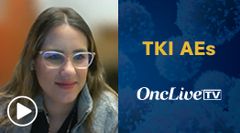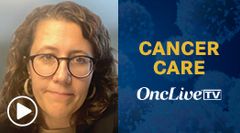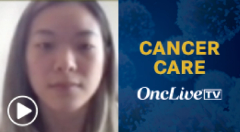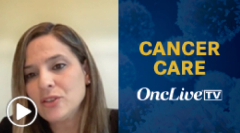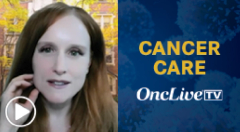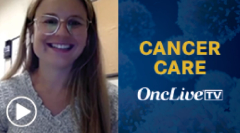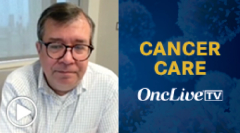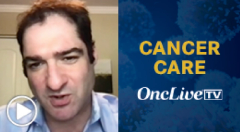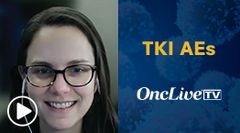
Experts Discuss the Safety Profile of Mobocertinib in EGFR Exon 20–Mutated Advanced NSCLC
Zosia Piotrowska, MD, Christine Lovly, MD, PhD, and Amanda Cass, PharmD, BCPS, BCOP, discuss the safety profile of mobocertinib in EGFR exon 20 insertion mutation–positive advanced non–small cell lung cancer.
Episodes in this series

Zosia Piotrowska, MD, Christine Lovly, MD, PhD, and Amanda Cass, PharmD, BCPS, BCOP, discuss the safety profile of mobocertinib (Exkivity) in EGFR exon 20 insertion mutation–positive advanced non–small cell lung cancer (NSCLC).
Zosia Piotrowska, MD, is a clinical researcher and lung cancer medical oncologist, Massachusetts General Hospital Cancer Center. Christine Lovly, MD, PhD, is an associate professor of medicine, Division of Hematology-Oncology, an Ingram associate professor of cancer research, and co-leader of Translational Research and Interventional Oncology Program at Vanderbilt University Medical Center and Vanderbilt Ingram Cancer Center. Amanda Cass, PharmD, BCPS, is a clinical pharmacist, the Thoracic Oncology Clinic, Vanderbilt University Medical Center.
Piotrowska, Lovly, and Cass explain that mobocertinib is the only EGFR TKI currently approved for advanced NSCLC harboring EGFR exon 20 insertion mutations. A typical adverse effect (AE) associated with EGFR TKIs is diarrhea, including mobocertinib. Approximately 90% of patients who receive mobocertinib experience diarrhea, Piotrowska notes.
The most common AEs of mobocertinib in addition to diarrhea include stomatitis, vomiting, anorexia, weight loss, and rash. More rare toxicities associated with mobocertinib to be aware of include interstitial lung disease/pneumonitis and cardiac toxicity.


